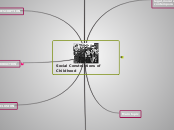av Camilla Per 12 år siden
1847
The early Hanoverians
In 1714, George I ascended the English throne, marking the beginning of the Hanoverian era. This period was characterized by significant shifts in political and social structures. The Age of Reason and the Enlightenment brought forth liberal thought, emphasizing free will, the goodness of mankind, and the pursuit of knowledge to dispel ignorance.









